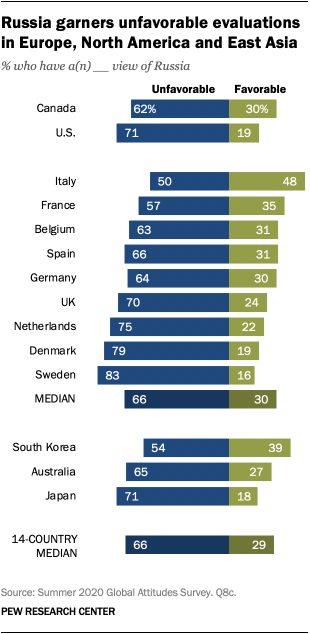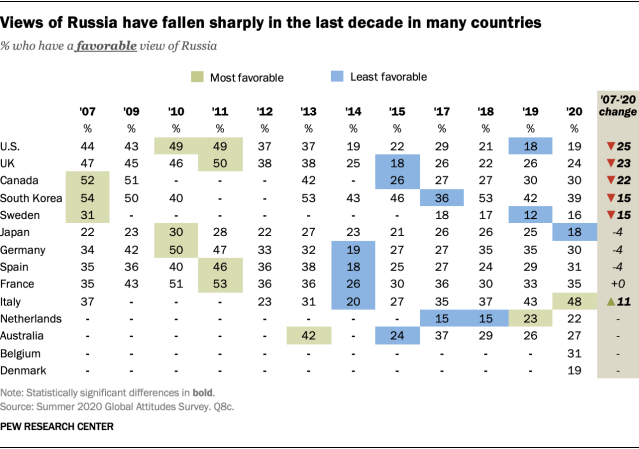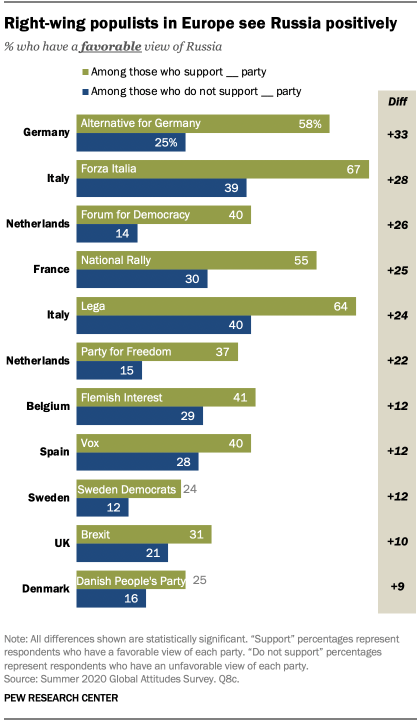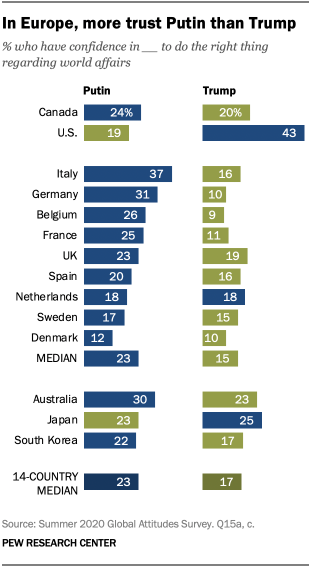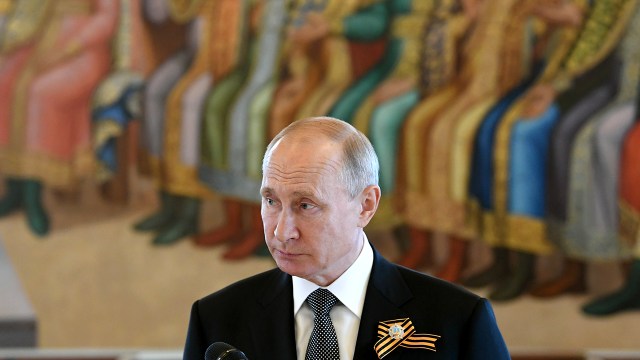
Russia’s image in the world and that of its leader, Vladimir Putin, have been on the decline for years, and a Pew Research Center survey conducted this summer in 14 advanced economies shows that continues to be the case.
For this analysis of views of Russia and Russian President Vladimir Putin, we conducted nationally representative surveys of 14,276 adults from June 10 to Aug. 3, 2020, in 14 advanced economies. All surveys were conducted over the phone with adults in the U.S., Canada, Belgium, Denmark, France, Germany, Italy, the Netherlands, Spain, Sweden, the UK, Australia, Japan and South Korea.
This study was conducted in countries where nationally representative telephone surveys are feasible. Due to the coronavirus outbreak, face-to-face interviewing is not currently possible in many parts of the world.
Here are the questions used for this report, along with responses, and its methodology.
A median of 66% of adults in those countries express an unfavorable view of Russia, with majorities in 12 of the 14 countries holding that view. Only a median of 29% hold a positive opinion of Russia.
People in Sweden, Denmark and the Netherlands hold the most negative views of Russia. At least three-quarters in all those countries hold an unfavorable opinion. Two-thirds or more say the same in Spain, the United Kingdom, Japan and the United States.
Of the countries surveyed, Italy stands out with its relatively sanguine outlook on Russia. Moscow delivered medical aid to Italy at the start of the pandemic, and about half in Italy see Russia favorably, the most positive evaluation of the nation by Italians since the question was first asked in 2007.
For other countries, evaluations of Russia have either remained low or dropped significantly since the Center first surveyed on the topic.
In the U.S., UK and Canada, the share who hold a favorable view of Russia has shrunk by at least 20 percentage points since surveys began in 2007. In Germany, Spain and France, the share has continued to hover at around one-third of the population. For Japan, about two-in-ten to three-in-ten have held a favorable view of their neighbor.
Those ages 50 and older are less likely than those ages 18 to 29 to see Russia favorably. In Germany, for example, 44% of 18- to 29-year-olds hold a positive view of Russia, compared with just 25% of those 50 and older. Age differences are large enough to be statistically significant in 13 of the 14 countries surveyed, but younger people in North America and older people in some European countries are also less likely to answer the question.
Europeans who see right-wing populist parties favorably are also more likely to see Russia favorably. The difference is greatest in Germany, where supporters of Alternative for Germany (AfD) are 33 percentage points more likely than nonsupporters to have a positive opinion of Russia. Supporters of right-wing populist parties in Italy, the Netherlands and France are also at least 20 points more likely than nonsupporters to hold a positive view of the country.
Still, support for Russia is a minority view among supporters of right-wing populist parties. Only in Germany, Italy and France do a majority of right-wing populist party supporters hold a favorable view of Russia.
The generally negative views of Russia extend to Putin. Across the 14 countries surveyed, a median of 23% say they have confidence in Putin to do the right thing in world affairs, while a median of 73% say they have no confidence in the Russian leader.
Outside Italy, no more than a third of the population in each country surveyed expresses confidence in Putin. Trust in the Russian leader is especially low in Spain, the U.S., the Netherlands, Sweden and Denmark, countries in which a fifth of adults or fewer express this opinion. Only in Australia, Germany and Italy do three-in-ten or more trust Putin on the global stage.
Even so, more trust Putin than U.S. President Donald Trump in nearly all 14 countries surveyed. The difference is especially stark in Europe, where more have confidence in the Russian president than in Trump in all but one country surveyed. In Italy and Germany, people are 21 percentage points more likely to have a favorable view of Putin than of Trump. There are also double-digit differences in Belgium and France. Only Americans, Canadians and Japanese are more likely to see Trump favorably. Putin’s slight edge over Trump in confidence was also seen in a 2019 Pew Research Center study that included countries outside of North America, Europe and Asia.
Note: Here are the questions used for this report, along with responses, and its methodology.
